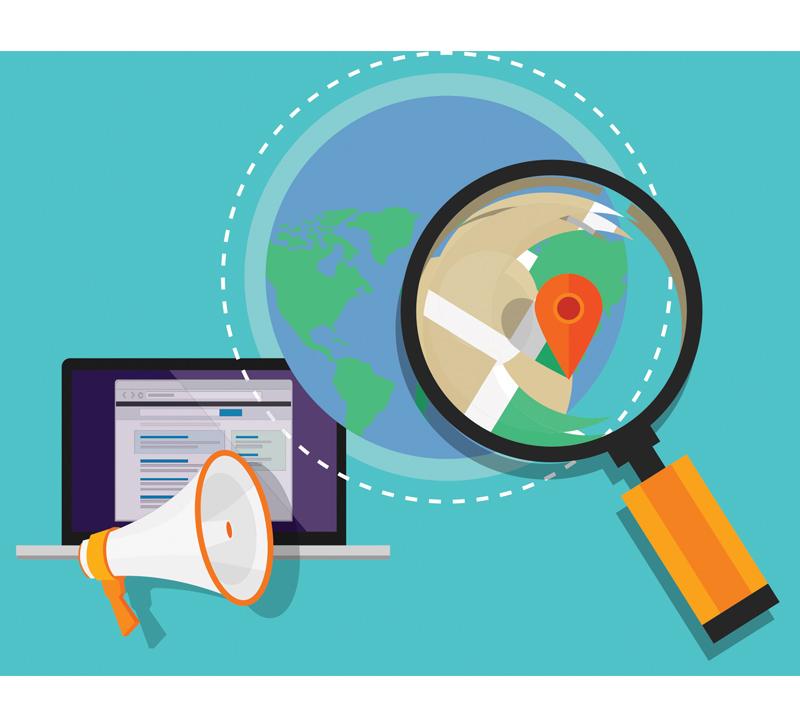As the days of yellow pages and landlines become a distant memory, local consumers can find businesses in their area in a matter of seconds online. You want your online pages to rank well locally so consumers in your community can find you. That’s where your local search engine optimization (SEO) strategy comes in.
We spoke to digital marketing experts to learn more about why local SEO is especially important for small businesses and what steps you should be taking to boost your visibility. Here’s what they said.
SEO V. Local SEO
Local SEO is a subcategory SEO that targets people who are doing local searches with a specific city or region in their keywords. The goal here is to get your business to the top of Google search results for local search terms such as “lighting showroom Chicago” or “furniture store Springfield.”
When you target for a more niche audience based on location, you’ll compete less with companies like IKEA that will always have a larger web presence than you. Joe Warner, Chief Technology Officer at marketing agency Aimclear in Duluth, MN, says focusing on local SEO rather than SEO in general will help you reduce local competition, which can translate to increased foot traffic.
Think of it this way: Keywords like “wall sconce” will bring up search results with Wayfair and Amazon dominating the top results. Localized keywords such as “lighting showroom Chicago” cut out e-commerce sites and reduce the competition to the showrooms in the city specified. Chances are, anyone doing this search is looking to visit a business soon, so you want to be front and center.
How to Target Local SEO
The first step to local SEO is claiming your location on Google, Bing and Yahoo. For Google, you can do this by setting up a profile at www.google.com/business and adding your address, contact information and business hours. It’s simple, but a 2016 Brandmuscle study showed that only 44 percent of local retailers have claimed their Google My Business listing.
Once you claim your listing, you need to make sure your address is added to every page of your website and written in the same format. If you abbreviate “Road” to “Rd.” or “Street” to “St.” in your Google listing, then it should be abbreviated the same way on every page. This will help search engine spiders correctly catalog your site.
To further help these spiders, you should be using localized keywords — your city or region along with a keyword such as lighting showroom — in your home page’s URL, title tag and H1 tag as well as in the body content. The easier it is for spiders to catalog your site, the higher you will rank.
Google rewards unique content in search results, so having reviews will bolster your local SEO. At Montreal Lighting & Hardware, E-commerce Coordinator Teneisha Collins says the staff encourages reviews face to face in their showroom and through email marketing. Not only do reviews — especially positive ones — boost your ranking, they will encourage more customers to your showroom.
All of these factors help local SEO, but they aren’t all one-and-done solutions. Businesses need to keep using localized keywords in new content, and they should keep encouraging reviews. Collins says business owners need to approach their local SEO as an ongoing focus, rather than an afterthought.
“You cannot build an SEO strategy once and then let it just sit,” Collins says, “because even if it gives you results now, eventually — and that’s not an if, that’s a when — it will stop working as effectively as you had initially seen.”







